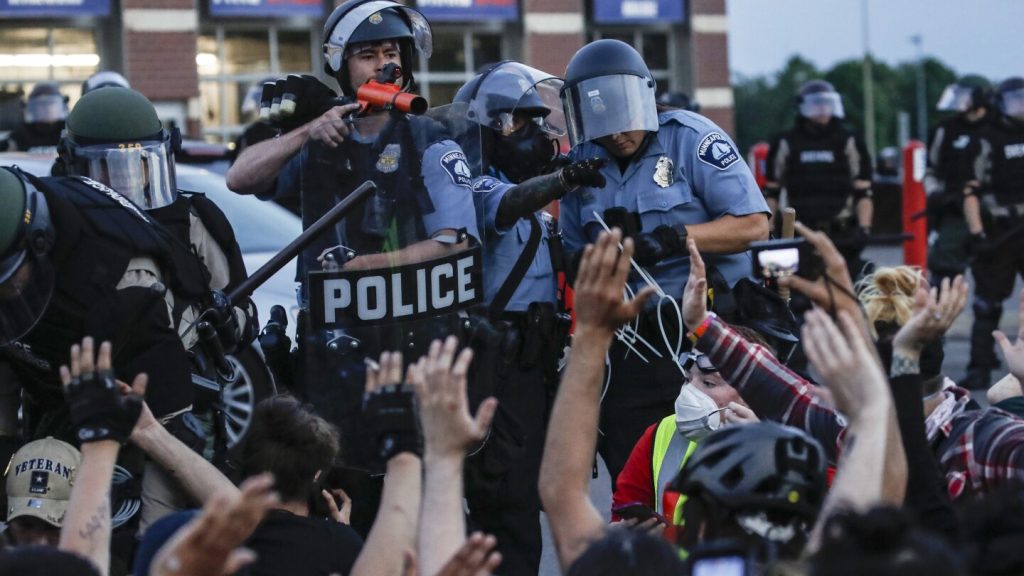The recent release of documents shows that at least 11 Minneapolis police officers were disciplined for policy violations during the unrest following the murder of George Floyd. These violations ranged from firings to reprimands and were a result of the sometimes violent protests that erupted after Floyd was killed by Derek Chauvin. Chauvin, a white former officer, knelt on Floyd’s neck for nearly 9 1/2 minutes, leading to a national reckoning with police brutality and racism. The department had been slow to release disciplinary reports, with some cases taking over a year to acknowledge even a written reprimand to an officer who spoke to a reporter about the “toxic culture” in the department.
One of the most serious cases involved an assault on Jaleel Stallings, where former Interim Police Chief Amelia Huffman fired Officer Justin Stetson for using “unreasonable force” that could have resulted in more severe injuries. Stallings, an Army veteran with a permit to carry a gun, fired three shots at an unmarked police van after being shot with a “less lethal” round by Stetson. Stetson then proceeded to kick, punch, and slam Stallings’ head into the pavement, resulting in injuries. Despite Stallings claiming self-defense, Stetson pleaded guilty to assault and was given probation. The city later agreed to pay Stallings a $1.5 million settlement after he was acquitted of attempted murder charges. Other officers involved in the incident received varying levels of suspensions for their actions.
Additional disciplinary actions included Officer Kristopher Dauble receiving a 40-hour suspension for firing rounds at pedestrians about a block away from where the incident with Stallings occurred. Sgt. Kevin Angerhofer was suspended for 60 hours for failing to conduct a proper force review as the supervisor of the SWAT teams in the area. Another report detailed the attempted firing of Sgt. Ronald Stenerson, who sprayed a chemical agent into the face of a journalist who was lying on the ground holding press credentials. Stenerson did not document his actions or activate his body camera, leading to his eventual resignation. Police Chief Brian O’Hara also issued suspensions against officers who confronted protesters blocking the Interstate 35W bridge in downtown Minneapolis.
The releases of these disciplinary reports shed light on the actions taken by Minneapolis police officers during the unrest following the murder of George Floyd. The cases demonstrate the range of violations that occurred, from the use of excessive force to failure to document actions or activate body cameras. The department’s response to the protests highlighted the challenges faced in maintaining order while upholding the rights of citizens to peacefully demonstrate. The disciplinary actions taken against the officers involved serve as a reminder of the importance of accountability and transparency in law enforcement, especially in the wake of high-profile incidents of police brutality and racial injustice.
Despite the slow release of disciplinary reports, the recent transparency provides insight into the internal investigations and outcomes of cases involving Minneapolis police officers. The community can now see the consequences faced by officers who violated policies during a period of heightened tensions and civil unrest. Moving forward, the department will need to continue to address issues of systemic racism and ensure that officers are held accountable for their actions to rebuild trust with the community. The disciplinary actions taken against the officers involved in these cases are a step towards accountability and justice for those affected by police misconduct.


